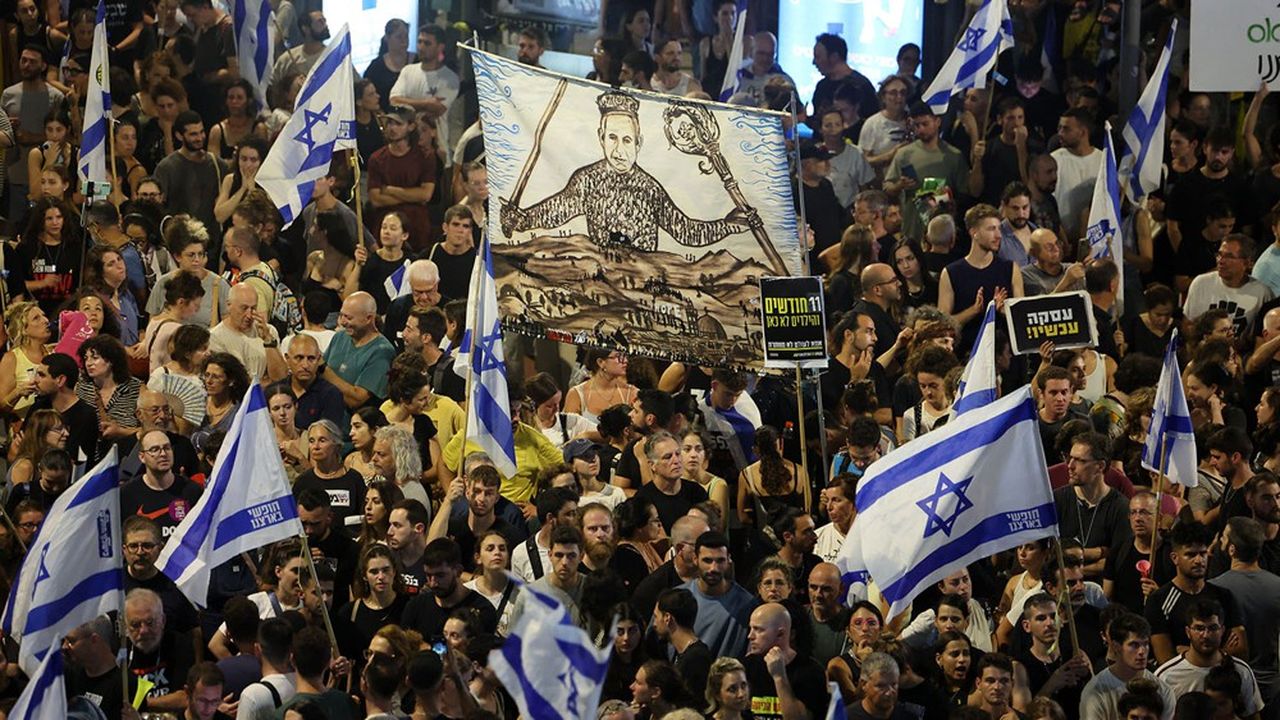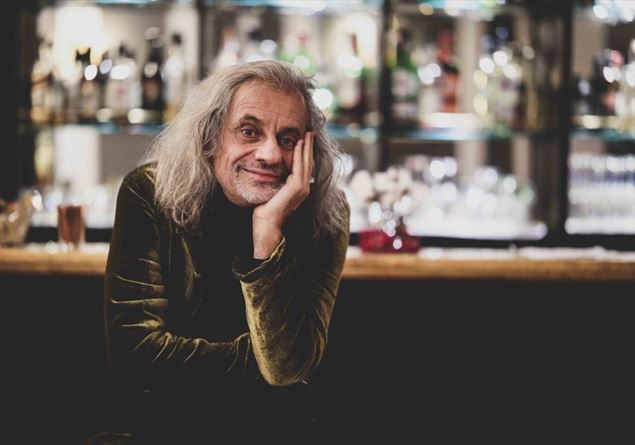
Israeli civil society has suddenly woken up. Several hundred thousand demonstrators took part in the largest protest rally since the start of the war in the Gaza Strip on October 7 in Tel Aviv, Jerusalem and other cities on Sunday night. This is a turning point, as the protest movement had been losing steam in recent months.
The Histadrut, the all-powerful trade union center, also took the plunge and declared a general strike, which was partially followed. A major first.
The mobilization aimed to denounce the line of Benjamin Netanyahu, accused of doing everything to prevent the conclusion of an agreement with Hamas on a ceasefire and the release of the hundred hostages held by the Islamist organization. The trigger was the announcement of the murder of six hostages, shot in the head. Their bodies were found this weekend in a tunnel in the south of the Gaza Strip.
Agreement torpedoed
The drama almost coincided with the war cabinet’s decision, taken on Friday at Netanyahu’s initiative, to reject any agreement that did not include maintaining the Israeli army along the 14 km border between the south of the Gaza Strip and Egypt, to prevent arms trafficking through tunnels.
But this new demand has been categorically rejected by Hamas and Egypt. Defense Minister Yoav Gallant and the general staff believe that the army can safely withdraw from the border area, since it could return if necessary within a matter of hours.
“The prime minister has thus torpedoed any chance of an agreement,” lamented Einav Zangauker, mother of Natan, one of the hostages, in a speech to a huge crowd outside the Defense Ministry headquarters in Tel Aviv. “Because of the prime minister, the hostages continue to live in hell,” proclaimed Nadav Rudaeff, the son of a hostage.
Anger is all the more acute because four of the six hostages killed were supposed to be part of a contingent that was to be released during the first stage of the agreement promoted by the Americans during a six-week ceasefire.
Limited disruptions
On the social front, Arnon Ben David, the secretary general of the Histadrut, joined the protest for the first time by announcing a general strike. The movement was massively followed in banks, public services, municipalities, education…
In other sectors, especially in the private sector, disruptions were limited. Takeoffs at Ben-Gurion Airport, the main window to the outside world, were cancelled for two hours. Most bus routes were relatively unaffected.
The government responded by filing a complaint with a court, arguing that the strike was illegal because it was “politically motivated.” The court ordered a return to work on Monday. Rather than engage in a showdown, Arnon Ben David had already announced the end of the movement on Sunday afternoon.
Critical mass
The question is whether the protests will grow. Most of the hostages’ families hope that they will reach a critical mass to force Benjamin Netanyahu to compromise, while, according to American media, Joe Biden is preparing in the coming days to present a final updated agreement proposal that will be “take it or leave it”.
But according to several commentators, the real danger for the Prime Minister can only come from defections within his very narrow majority of 64 out of 120 deputies. For the moment the edifice is holding firm, with the sole exception of Yoav Gallant.
The two far-right parties, which have 14 votes in parliament, support Netanyahu’s hard line in favor of continuing the war. The deputies of the Likud party, the prime minister, do not dare to question his authority. As for the two ultra-Orthodox religious formations in the majority, they do not seem ready to engage in a showdown with a government that meets most of their demands.




